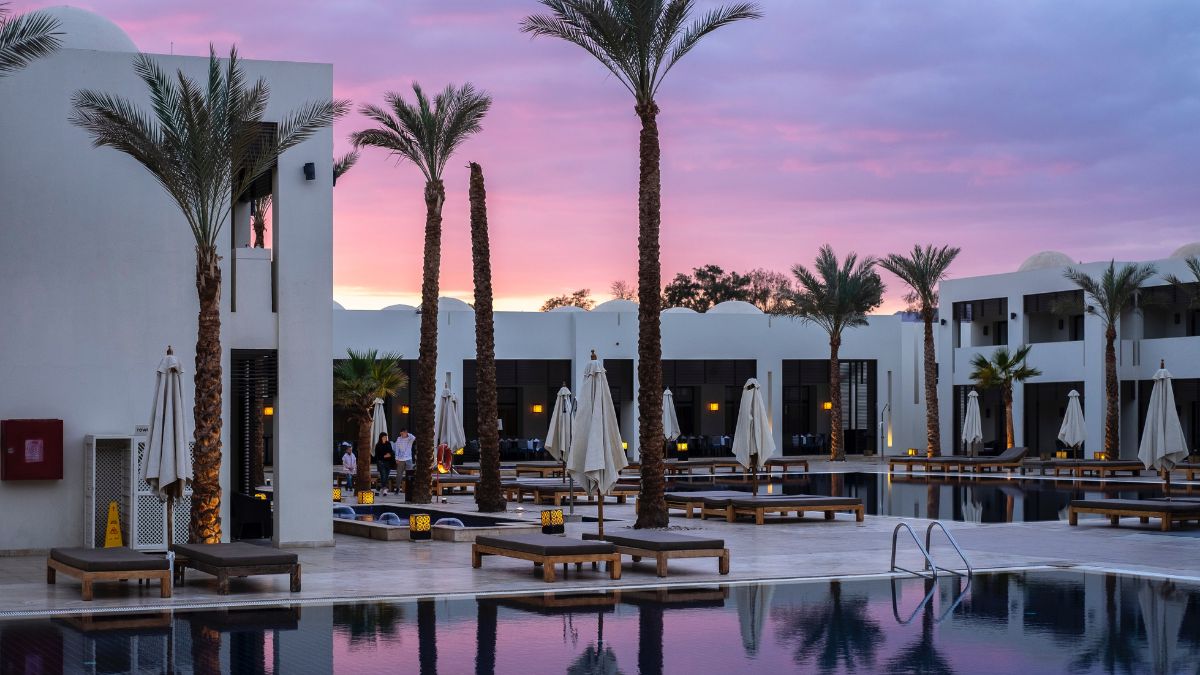How Much Does It Cost to Buy a Hotel? (& Is It Worth It)

As participants in Amazon Associates and other programs, we earn from qualifying purchases. This comes at no additional cost to you. For more details, see our Affiliate Disclosure.
Are you considering buying a hotel? It’s a big investment, and there are many factors to consider before making a decision. The cost of buying a hotel can vary greatly depending on its location, size, and amenities. In this article, we’ll explore the costs associated with buying a hotel and help you determine if it’s worth it for you.
HIGHLIGHTS
- The average cost of purchasing a hotel can range from $1 million for smaller properties to over $100 million for luxury hotels in prime locations.
- Operational expenses post-acquisition, such as staffing and maintenance, can account for 50-80% of a hotel’s total revenue.
- Hotels in optimal locations with high occupancy can generate an ROI of 10-15% or more.
- Considering both the acquisition and operational costs, a well-managed hotel in the right market can prove to be a lucrative investment.
The Real Price Tag: What’s the Cost of Buying a Hotel?
The primary cost associated with buying a hotel is the price of the property itself. This cost can vary widely, from $500,000 for a small boutique hotel in a rural area to upwards of $50 million for a luxury hotel in a major city.
Renovation Costs
If the property isn’t in perfect condition, expect to invest in renovations. Minor upgrades might cost as little as $100,000, while extensive renovations for larger properties can climb to $5 million or more.
Licensing and Permits
To operate a hotel, various licenses and permits are required. The costs can range from $10,000 for basic licensing to over $100,000 for permits in stricter municipalities or regions.
Training and Staffing
Hiring and training a staff is an upfront cost that can’t be overlooked. Depending on the size and service level of the hotel, initial staffing costs might range from $50,000 to $500,000.
Marketing and Launch
To introduce the hotel to potential customers, a significant marketing push might be necessary. A basic campaign can start at $20,000, while a comprehensive global marketing initiative can cost upwards of $200,000.
| Expense Category | Cost Range |
|---|---|
| Initial Purchase | $500,000 – $50M |
| Renovations | $100,000 – $5M |
| Licensing & Permits | $10,000 – $100,000 |
| Training & Staffing | $50,000 – $500,000 |
| Marketing & Launch | $20,000 – $200,000 |
Note: These numbers are illustrative and can vary greatly based on multiple factors. It’s crucial to conduct a thorough financial analysis and feasibility study tailored to the specific hotel you’re considering.
Evaluating the Value: Is Investing in a Hotel Truly Worth It?
Investing in a hotel is a significant financial commitment, often leading potential investors to question the real value behind such a venture. Return on Investment (ROI) is a primary consideration. In flourishing tourist spots or business hubs, hotels can generate an annual ROI of 8-12%. This potential, however, is closely tied to factors such as occupancy rates and daily average rates.
Yet, hotels aren’t just about annual revenue. Over time, a well-maintained hotel can see its asset appreciation. This means that selling the property in the future might yield a higher price than the initial investment, especially if its reputation has been upheld or enhanced.
Diversification is a goal for many seasoned investors. Hotels offer a unique opportunity to diversify investment portfolios, providing a distinct asset class from traditional stocks or residential properties. This diversity can act as a buffer against market fluctuations in other sectors.
However, the hotel industry isn’t without its challenges. Effective operational management is paramount. Hotels require consistent oversight, from ensuring top-notch guest services to regular property maintenance. Without a solid managerial strategy, potential profits can quickly be overshadowed by ballooning operational costs.
Economic and global events play a considerable role in the hotel industry’s success. The sector is notably sensitive to market fluctuations. During economic downturns, travel diminishes, affecting hotel bookings. Conversely, during prosperous times, hotels can see surging profits.
One aspect that often attracts investors to the hotel sector is the barrier to entry. The high initial investment ensures a degree of market exclusivity, deterring many potential competitors from venturing into the space.
Beyond tangible profits, many hotel owners relish the intangible rewards of the business. Providing guests with unforgettable experiences and being part of their cherished memories can be fulfilling in a way that’s hard to quantify.
In conclusion, determining the worth of investing in a hotel hinges on both tangible profits and personal values. While it presents lucrative opportunities, it also comes with its set of challenges. As always, thorough research and expert advice are vital before diving into such a significant investment.
Factors Influencing Hotel Prices
Hotel prices aren’t arbitrary figures pulled out of thin air. They are the result of a complex interplay of various factors, each carrying its weight. Understanding these influencing factors can provide a clearer picture of the value of a hotel and aid in making informed investment decisions. Here’s a breakdown of the critical elements that influence hotel prices:
- Location: Often touted as the cardinal rule in real estate, location plays a pivotal role in determining a hotel’s price. Properties in prime tourist destinations, major cities, or near significant attractions typically command higher prices than those in remote or less popular areas.
- Size and Capacity: The number of rooms a hotel has, along with the overall size of the property, is directly proportional to its price. Larger hotels with more rooms generally come with heftier price tags.
- Brand Affiliation: Hotels affiliated with renowned brands or chains often have a premium attached to their price. This is due to the perceived value, reputation, and often the guaranteed standards and support that come with such affiliations.
- Condition and Age: A newer hotel or one that has been recently renovated will usually be priced higher than older properties in need of refurbishment. The state of the infrastructure, amenities, and overall aesthetic plays into the valuation.
- Financial Performance: Hotels with a proven track record of strong financial performance, high occupancy rates, and good profit margins are likely to be priced higher. A history of steady revenue indicates a successful business model and less risk for potential investors.
- Amenities and Services: Luxury hotels that offer a range of amenities like spas, pools, gourmet restaurants, and concierge services will generally be priced higher than basic establishments.
- Economic Climate: Macro-economic factors, such as interest rates, economic growth, and the overall health of the tourism sector, influence hotel prices. A thriving economy might lead to increased hotel valuations.
- Market Saturation: In areas where there’s an oversupply of hotel rooms but limited demand, prices might be suppressed. Conversely, undersupplied markets with high demand can see elevated hotel prices.
- Land Value: The value of the land on which the hotel stands can be a substantial component of its overall price, especially in densely populated urban areas or prime real estate spots.
- Regulatory Environment: The ease of doing business, property taxes, regulations related to the tourism industry, and other local laws can affect hotel prices. Stringent regulations might discourage investment, potentially driving down prices, while favorable conditions can boost them.
Hotel prices are shaped by a myriad of factors, from tangible assets like size and amenities to more intangible elements like brand reputation and economic climate. An investor should carefully weigh all these aspects before determining the actual worth of a hotel property.
Financing Options for Hotel Acquisitions
Acquiring a hotel requires a considerable investment, and very few individuals or entities can make such a purchase outright in cash. As a result, numerous financing options have been developed to facilitate the acquisition of hotels. Here’s an overview of the most common financing avenues:
Traditional Bank Loans: The most straightforward method of financing, banks provide loans based on creditworthiness, business plans, and the potential profitability of the hotel. They’ll typically require a significant down payment, often ranging from 20% to 40% of the purchase price.
SBA Loans: In the U.S., the Small Business Administration (SBA) offers loans to entrepreneurs and small businesses. The SBA 7(a) loan, for instance, can be particularly appealing for hoteliers due to its relatively low down payment, longer repayment terms, and competitive interest rates.
CMBS Loans: Commercial Mortgage Backed Securities (CMBS) loans are a type of mortgage-backed security secured by a loan on a commercial property, including hotels. These loans are known for their flexibility and are often used when traditional bank loans aren’t feasible.
Private Equity: Some hotel investors turn to private equity firms, especially for high-end or luxury properties. These firms invest in the hotel in exchange for equity, hoping to get a return on their investment as the hotel grows in value.
Mezzanine Financing: This is a hybrid form of financing that combines elements of debt financing and equity investment. It’s subordinate to primary bank loans but has a higher claim than equity investors. This type of financing is typically riskier for the lender, and therefore comes with higher interest rates.
Seller Financing: In some cases, the seller might provide financing options. Here, the buyer provides a down payment, and then makes regular payments to the seller instead of a bank. Terms and interest rates are negotiated between both parties.
Real Estate Investment Trusts (REITs): REITs are companies that own, operate, or finance income-producing real estate across a range of property sectors. Some hotel owners use REITs as a way to convert their property into liquid assets, while investors can buy shares of REITs on public exchanges.
Crowdfunding: An emerging trend in hotel financing, crowdfunding platforms allow multiple investors to contribute smaller amounts toward the purchase or development of a hotel. This method democratizes hotel investment, making it accessible to a broader range of investors.
Joint Ventures: A joint venture involves partnering with another individual or entity to purchase a hotel. This spreads the financial burden and risk, but also means profits and decision-making are shared.
When considering any financing option, it’s essential to consult with financial advisors, understand the intricacies of each method, and evaluate the long-term implications. With the right financial strategy, hotel acquisitions can lead to prosperous returns.
Understanding Operational Costs Post-Purchase
After purchasing a hotel, the financial commitments don’t cease. In fact, operational costs become a consistent part of running the business, directly impacting profitability and return on investment. Here’s a breakdown of the primary operational costs associated with running a hotel:
Staff Salaries and Wages: Employees are at the heart of the hospitality business. Salaries for staff, from the front desk and housekeeping to management and maintenance teams, represent a significant chunk of a hotel’s operational expenses.
Utilities: Hotels consume a substantial amount of utilities. Electricity, water, gas, and other utilities, especially in larger properties or those with amenities like pools and spas, can form a significant monthly expenditure.
Maintenance and Repairs: Regular upkeep is vital for the smooth operation of a hotel. Whether it’s fixing broken fixtures, maintaining HVAC systems, or larger renovation projects, maintenance costs can quickly accumulate.
Marketing and Advertising: To attract guests, hotels need to market their services, both online and offline. This includes expenses for website management, digital advertising, print media, promotions, and potentially commissions to online travel agencies.
Insurance: Comprehensive insurance for property damage, liability, worker’s compensation, and other potential risks is essential and can be costly.
Taxes: Property taxes, occupancy taxes, and other local or federal taxes are recurring expenses that hotel owners must account for.
Amenities and Services: If a hotel offers additional amenities like a gym, spa, or restaurant, there will be associated operational costs, from equipment upkeep to inventory replenishment.
Licenses and Permits: Depending on the region, hotels may need to periodically renew licenses or permits, incurring additional costs.
Reservations Systems: Modern hotels often employ reservation and property management systems to streamline operations. There are costs associated with purchasing, maintaining, and updating these systems.
Debt Service: If the hotel was purchased with a loan or other financing, monthly or quarterly repayments become a fixed operational cost.
Miscellaneous Expenses: These can include items such as office supplies, uniforms for staff, laundry operations, guest supplies (like toiletries), and any other costs that aid in the day-to-day functioning of the hotel.
To ensure the hotel remains profitable, owners must continuously monitor and adjust their operations in response to these recurring expenses. By optimizing processes, seeking cost-saving opportunities, and ensuring high occupancy rates, the operational costs can be balanced against incoming revenue, ensuring a healthy bottom line.
Location, Location, Location: How Geography Affects Price
The age-old adage “location, location, location” isn’t just a catchy phrase; it embodies a core principle of real estate, and the hotel industry is no exception. The geographical location of a hotel plays an outsized role in its valuation, operational costs, and potential profitability. Here’s a deep dive into how geography affects hotel prices:
1. Demand & Supply Dynamics: Cities with high tourist traffic or significant business activities usually have a higher demand for hotel accommodations. Think of New York City, Paris, or Tokyo, where millions of tourists flock annually. Conversely, remote areas with lesser-known attractions might see lower demand. High demand often leads to higher room rates and, by extension, higher property values.
2. Land Costs: In densely populated urban areas or prime tourist destinations, the cost of land itself can be extremely high. This elevates the overall price of a hotel property situated in such areas.
3. Competition: Popular destinations may also have a high concentration of hotels, leading to intense competition. This competition can exert downward pressure on room rates, but it also indicates a thriving market that can sustain multiple businesses.
4. Operating Costs: Geography can directly influence operational costs. For instance, hotels in tropical locations might spend more on cooling, while those in colder regions might have elevated heating expenses. Additionally, the cost of goods, services, and labor can vary widely depending on the region.
5. Regulatory Environment: Local regulations, zoning laws, and licensing requirements differ across regions. Some areas might offer tax incentives for hoteliers, while others could have stringent regulations that add to operational costs, both of which can influence hotel prices.
6. Accessibility: Hotels that are easily accessible — be it via major highways, airports, or public transportation — often command higher prices because of the convenience they offer guests.
7. Natural Disasters & Climate Change: Regions prone to natural disasters (hurricanes, floods, earthquakes) might have lower hotel valuations due to the associated risks. Additionally, areas affected by climate change (e.g., rising sea levels affecting beachfront properties) might see fluctuating property values.
8. Cultural & Historic Significance: Areas with cultural, historical, or natural attractions often have higher hotel prices. This is because such attractions draw tourists, ensuring a steady stream of potential guests.
9. Seasonality: Some regions have distinct peak and off-peak seasons. Ski resorts, for example, might see a surge in winter but a lull in summer. Such seasonality can influence a hotel’s average annual occupancy rates, impacting its valuation.
Geography weaves a complex web of factors that together determine the price of a hotel. Savvy investors always conduct thorough market research, including a deep understanding of geographical implications, before deciding on a hotel acquisition.
Brand Affiliation and its Impact on Costs
Brand affiliation, wherein an independent hotel aligns with a recognized hotel brand or chain, can be a double-edged sword when it comes to costs.
For starters, affiliating with a renowned brand typically involves upfront fees and regular royalty payments. These royalties are a percentage of a hotel’s revenue, paid in exchange for leveraging the brand’s name and resources.
Such affiliations also come with mandated standards to ensure consistency across the brand. Adhering to these standards might require hoteliers to invest in renovations, upgrades, or specific amenities, adding to operational costs.
However, being part of a reputable brand can drive higher occupancy rates. The brand’s established customer base, loyalty programs, and marketing machinery can result in increased bookings, which can offset the higher costs.
On the flip side, branded properties may also face higher expectations from guests. This can necessitate continual investment in training, services, and facilities to maintain a level of service synonymous with the brand.
Further, brands often have negotiated rates with suppliers and service providers. Affiliated hotels can tap into these deals, potentially leading to cost savings in areas like procurement, technology, and marketing.
Lastly, while brands provide central reservation systems and platforms, they may charge commissions or fees for bookings made through these channels, adding another layer to the cost structure.
ROI Expectations: Analyzing Profitability Potentials
The return on investment (ROI) is a crucial metric for hotel investors, providing insights into the profitability potential of their investments. While ROI can be influenced by numerous factors, it’s essential to understand the key drivers that can enhance or diminish the return.
Initial Investment: This includes the purchase price of the hotel and any initial renovations or upgrades required. A higher initial investment means that you’ll need a higher return to achieve a desirable ROI.
Operational Costs: From staffing and maintenance to marketing and administration, operational costs can significantly eat into profits. Keeping these costs in check without compromising on service quality is crucial for maximizing ROI.
Occupancy Rates: A higher occupancy rate generally translates to higher revenue. Factors like location, amenities, marketing efforts, and competition influence occupancy rates.
Room Rates: While higher room rates can boost revenue, they must be set judiciously. Overpriced rooms can deter guests, leading to lower occupancy.
Additional Revenue Streams: Services like spas, restaurants, and conference facilities can generate additional income, positively impacting ROI.
Debt Service: If the hotel acquisition was financed, interest payments and loan repayments would factor into ROI calculations.
Brand Affiliation: While affiliating with a brand can lead to increased costs, the potential boost in occupancy and room rates might result in a net positive effect on ROI.
Economic Climate: A thriving economy can boost tourism and business travel, leading to higher demand and potentially higher ROI. Conversely, economic downturns can depress ROI.
Long-term Appreciation: ROI isn’t just about yearly profits. The appreciation of the property value over time can significantly impact the overall return when the property is sold.
To better visualize the factors impacting ROI, consider the following table:
| Factor | Potential Impact on ROI |
|---|---|
| Initial Investment | Negative (Higher costs reduce ROI) |
| Operational Costs | Negative (Higher costs reduce ROI) |
| Occupancy Rates | Positive (Higher occupancy boosts ROI) |
| Room Rates | Can be positive or negative |
| Additional Revenue Streams | Positive |
| Debt Service | Negative (Higher costs reduce ROI) |
| Brand Affiliation | Can be positive or negative |
| Economic Climate | Can be positive or negative |
| Long-term Appreciation | Positive (Increases overall ROI) |
While numerous factors can influence ROI, strategic management, continuous market analysis, and timely investments can help hoteliers optimize returns.
Risks and Rewards: A Balanced View
When considering a hotel investment, it’s crucial to understand both the risks and rewards involved. This ensures a holistic view of the potential outcomes, allowing investors to make informed decisions.
Risks
- Economic Fluctuations: The hospitality industry is sensitive to economic downturns. During recessions or global crises, travel can decline significantly, impacting hotel revenues.
- Operational Challenges: Hotels require effective management. Poor guest experiences, high staff turnover, or subpar amenities can harm a hotel’s reputation and profitability.
- High Initial Investment: The upfront costs of purchasing and renovating a hotel can be substantial, and it may take time to recoup this investment.
- Competition: With the rise of alternative accommodation options like Airbnb, hotels face increasing competition. Standing out in a saturated market can be challenging.
- Regulatory Changes: Local regulations, such as zoning laws or tourist taxes, can change and affect the hotel’s operations and profitability.
Rewards
- Steady Cash Flow: A well-run hotel in a prime location can offer consistent cash flow from room bookings, events, and other amenities.
- Property Appreciation: Over time, real estate, including hotels, can appreciate in value, offering investors potential capital gains upon selling.
- Diversification: For investors with a diversified portfolio, hotels can be an excellent way to spread risk across different asset classes.
- Brand Affiliation Benefits: Aligning with a recognized hotel brand can provide marketing support, operational guidelines, and a loyal customer base, all of which can boost revenues.
- Leverage Opportunities: Real estate, including hotels, offers opportunities for leveraging. Investors can use financing options to acquire properties, potentially magnifying returns.
While hotel investments come with inherent risks, they also present substantial rewards. It’s essential for investors to conduct thorough due diligence, understand the local market dynamics, and be prepared for both the challenges and opportunities that lie ahead.
Expert Tips for First-Time Hotel Buyers
Embarking on the journey of buying a hotel, especially for first-timers, can be both exhilarating and daunting. Expert advice can make the process smoother and more rewarding. Here are some insightful tips from industry professionals for first-time hotel buyers:
- Due Diligence is Key: Before making any purchase, conduct a thorough investigation of the property. Review its financial statements, occupancy rates, and maintenance records. It’s crucial to understand what you’re getting into, both financially and operationally.
- Location Matters: As the saying goes, “location, location, location.” Ensure the hotel is situated in an area with consistent demand, be it from tourists, businesses, or events. Research local attractions, transportation links, and future development plans.
- Understand Operational Costs: Buying the hotel is just the beginning. Familiarize yourself with the recurring costs involved in running it – from staffing and utilities to marketing and maintenance.
- Consider Brand Affiliation: While independent hotels have their charm, affiliating with a known brand can offer benefits like centralized booking systems, marketing support, and training resources.
- Hire a Good Management Team: If you’re not planning to be a hands-on owner, invest in a skilled management team. Their expertise can drive profitability and ensure guest satisfaction.
- Plan for Renovations: Most hotels require periodic upgrades to remain competitive. Set aside funds and create a timeline for necessary renovations and improvements.
- Network with Other Hoteliers: Join hotelier associations or attend industry events. Learning from those who’ve been in the industry can provide invaluable insights and open doors to beneficial partnerships.
- Stay Updated with Industry Trends: The hospitality industry evolves rapidly. From changing traveler preferences to technological advancements, being in the loop can help you adapt and stay ahead of the competition.
- Evaluate Financing Options: Understand the various financing avenues available. From traditional bank loans to real estate investment trusts (REITs), choose what aligns best with your financial situation and goals.
- Prepare for the Unexpected: The hotel industry can be affected by various unforeseen events, from economic downturns to global pandemics. Have contingency plans and a robust emergency fund in place.
In conclusion, purchasing a hotel is a significant investment that requires meticulous planning, research, and passion. By heeding expert advice and continually seeking knowledge, first-time hotel buyers can navigate the complexities of the industry and lay the foundation for a successful venture.






